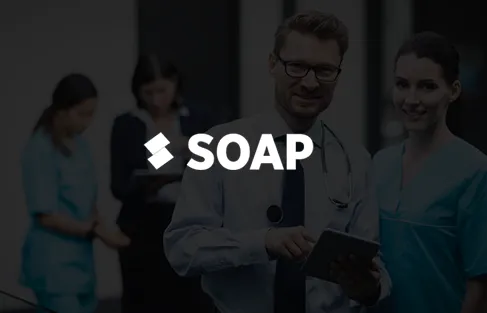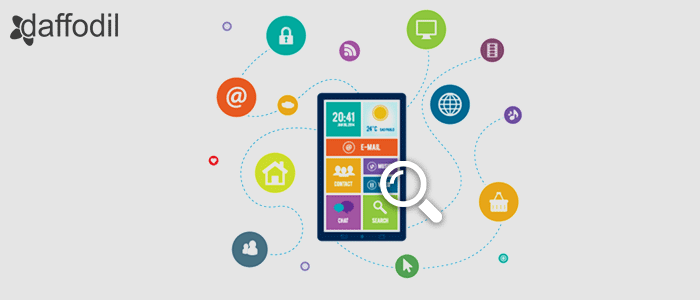Our holistic suite of healthcare software testing services
Functional testing
Assess the functionality of your healthcare application to ensure your app performs as per your user’s expectations and requirements. We assess the complete workflow from start to finish to ensure the system behaves as expected in real-world scenarios. Based on the assessment we help you induce automation to make the system more efficient and ultimately save time and cost.
Interoperability testing
Ensure that your application is capable of seamlessly sharing health information with other applications and systems like EHR, HIE, HMIS, patient portal, telehealth, etc. We help you validate the communication interface between different healthcare systems, and verify accurate data exchange, including patient information, clinical data, billing information, and more. This will help in enhancing patient care, reduce errors, and increase efficiency.
Compliance testing
Ensure that your healthcare software is designed and operated in accordance with the predefined standards and regulations. This is a must to ensure data integrity and interoperability. Ensure that diverse unstructured data is normalized in a unified FHIR, DICOM format to derive meaningful insights. And meeting geography-specific compliance such as the United States (HIPAA, CMS), Europe (GDPR, NHS), and Southeast Asia (MOH). This will help in maintaining trust, and avoid hefty financial penalties.
Cross-platform testing
Make sure your healthcare application is cross-platform compatible. We help you ensure your application operates consistently across different operating systems (Windows, macOS, Linux) and devices (desktops, tablets, mobile). We even verify browser compatibility along with hardware testing. This helps in maintaining a consistent user experience regardless of the user’s choice of device and environment.
Integration testing
Asses whether your healthcare app works in line with other modules or applications like EHR, HIMS, patient portal, telehealth, labs software, etc. conforming data flow and communication between modules. We help you implement automated tests to validate the integrity of the codebase in case of new updates. This aids in reducing the risk of failure post-deployment, helps in identifying discrepancies, and supports the development of healthcare software.
Load and performance testing
Asses the ability to handle large amounts of data quickly and accurately, handle a large user base, level of security provided to patient health information, etc. The performance is monitored under all conditions from normal load to extreme load ensuring the infrastructure can handle growth. We also utilize stress testing to understand the app’s upper limit. This can help make your system more reliable, improve user experience, and prevent potential downtime and system failures.
Regression testing
Ensure that new code changes do not adversely affect existing functionalities of your healthcare software. We help you implement automated test cases to quickly and effectively validate the behavior of your application after each change. This helps in saving time and resources.
Our success stories
Discover how our specialized software testing services can help you overcome bottlenecks, ensure compliances, and enhance efficiency.
Our testing expertise is expanded across different types of healthcare applications
EHR/EMR Applications
For EHR we test the accuracy, consistency, and reliability of patient data throughout its lifecycle. EHR systems often include CDS (clinical decision support) tools to provide health information to healthcare professionals. We test these CDS functionalities to ensure they deliver accurate alerts, reminders, clinical guidelines, and diagnostic support. We also ensure accurate tracking and report quality measures that will help you derive benefits from reporting programs like MIPS (Merit-based incentive payment system) and APMs (Alternative payment models).
Patient Portals
Patient portals are the prominent mode of patient engagement. Therefore, we test for intuitive navigation and workflow, ensuring that patients can easily get the information they are looking for. It is also important to validate efficient patient-provider communication, including secure messaging, telehealth, and timely notification. We also create test use cases that asses synchronization with EHR/EMR, medical tracking, appointment scheduling, etc.
HMIS
For HMIS, clinical workflow analysis is important to prompt efficiency and operational excellence. We evaluate bottlenecks and provide recommendations for system enhancements.
Our testing services are also focused on safe and accurate patient data migration from legacy systems to HMIS. We also verify your HMIS’s ability to exchange and use information across systems along with conformance to data exchange standards and protocols.
RPM (remote patient management) Applications
We offer specialized testing to ensure the precision of data collected from RPM devices. We assist in validating the reliability of data transmission, the effectiveness of real-time alerts, and the intuitiveness of the software. We also verify the system’s ability to track patient adherence and provide feedback to both patients and healthcare providers. It helps in delivering better health outcomes and personalized care.
Wellness and Fitness Apps
When it comes to fitness apps, it is essential to ensure analytics tools are rightly integrated. We offer services to verify the reliability and relevance of notifications, alerts, etc. that are critical for user engagement. We also test the accuracy of data collected from various sources and ensure data synchronization as well. Our focus also lies on validating algorithms used for health metrics calculations like step count, calorie burn, etc. to ensure valid information.
HIE Systems
For Health Information Exchange (HIE) systems, our primary focus lies on ensuring healthcare standards like HIPAA, FHIR, GDPR, HL7, and other regional regulations. We assist in the harmonization and standardization of clinical data spread across disparate healthcare systems. It is also important to test the authorization mechanism to ensure that only authorized personnel can access sensitive patient data and that all access is in compliance with patient consent.
Practice Management System
To maintain the proper functionality of PMS it is essential to comply with healthcare regulations such as HIPAA for patient privacy, MACRA for payment adjustments, and MIPS for performance management. We also test the efficiency and accuracy of revenue cycle management (RCM) to minimize delays and errors that can impact the provider’s revenue stream. Seamless integration with other healthcare systems is critical in this case to facilitate the free flow of patient data.
Telemedicine Application
In the case of telemedicine solutions also it is important to comply with regulations. Along with that, we help in ensuring compatibility with various medical devices and wearables that may interface with telemedicine platforms. We conduct thorough security testing to identify and mitigate vulnerabilities like data breaches, cyber threats, etc. We assist in implementing end-to-end encryption for all data transmissions and ensure secure storage of data.
Why Daffodil Software
Recognized excellence, proven customer satisfaction
Categorized as an aspirant in global PEAK Matrix assessment
Recommended vendor for custom software development services
Mentioned as a company to watch in the AI space
Categorized as a leader in digital engineering services
20+
years of software engineering excellence
150+
global clientele
4.8
Avg CSAT score
95%
customer retention rate





















